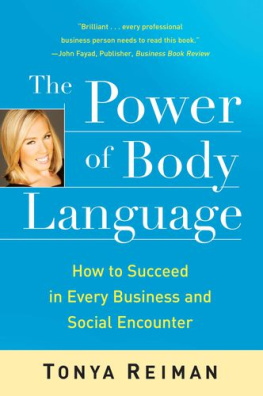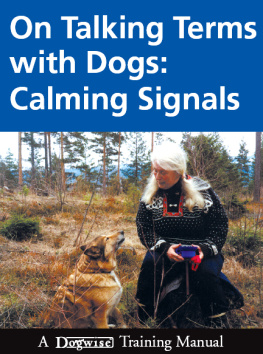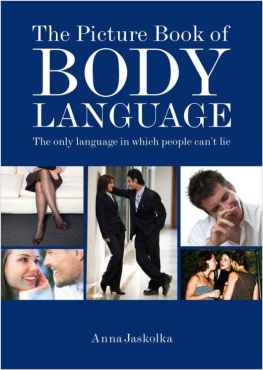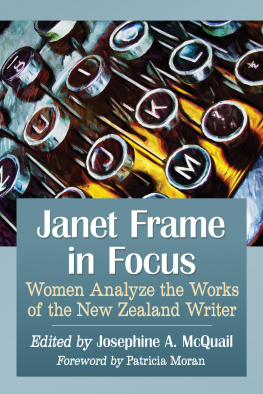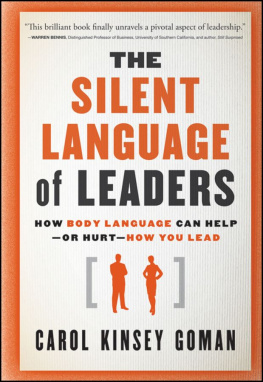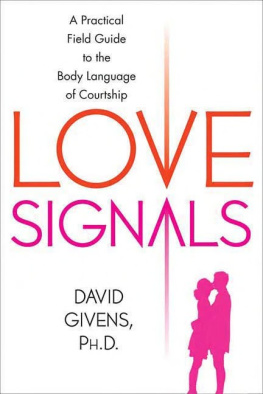Janet L. Hopson - Scent signals. the silent language of sex
Here you can read online Janet L. Hopson - Scent signals. the silent language of sex full text of the book (entire story) in english for free. Download pdf and epub, get meaning, cover and reviews about this ebook. City: New York, year: 1979, publisher: Morrow, genre: Romance novel. Description of the work, (preface) as well as reviews are available. Best literature library LitArk.com created for fans of good reading and offers a wide selection of genres:
Romance novel
Science fiction
Adventure
Detective
Science
History
Home and family
Prose
Art
Politics
Computer
Non-fiction
Religion
Business
Children
Humor
Choose a favorite category and find really read worthwhile books. Enjoy immersion in the world of imagination, feel the emotions of the characters or learn something new for yourself, make an fascinating discovery.
- Book:Scent signals. the silent language of sex
- Author:
- Publisher:Morrow
- Genre:
- Year:1979
- City:New York
- Rating:4 / 5
- Favourites:Add to favourites
- Your mark:
- 80
- 1
- 2
- 3
- 4
- 5
Scent signals. the silent language of sex: summary, description and annotation
We offer to read an annotation, description, summary or preface (depends on what the author of the book "Scent signals. the silent language of sex" wrote himself). If you haven't found the necessary information about the book — write in the comments, we will try to find it.
Scent signals. the silent language of sex — read online for free the complete book (whole text) full work
Below is the text of the book, divided by pages. System saving the place of the last page read, allows you to conveniently read the book "Scent signals. the silent language of sex" online for free, without having to search again every time where you left off. Put a bookmark, and you can go to the page where you finished reading at any time.
Font size:
Interval:
Bookmark:

This book made available by the Internet Archive.





For Michael,
WITH
Love
Digitized by the Internet Archive in 2011
http://www.archive.org/details/scentsignalssileOOhops
ACKNOWLEDGMENTS
Many people extended their time, professional knowledge, criticism, and technical assistance during my research and writing. I wish to thank, in particular, John Amoore, Joan Bauman, Joan Scherer Brewer, Diane Cecily, Alex Comfort, Richard Doty, Jodi Edell, John Feulner, Stanley Freeman, Margit Friedrich, David Goldfoot, Robert Henkin, Julie Houston, Martin Jacobson, Herant Katchadourian, Chuck Kinder, Martha McClintock, Elizabeth McKee, Richard Michael, George Preti, Doug Robinson, Mary Rogers, Harry Shorey, Lewis Thomas, Edward Wilson, and Volker Zinser.
Special thanks are due Michael Russell for comments, helpful discussions, and the generous loan of reference materials.
And my husband Michael Rogers made the completion of this book possible with his reading and editing, his high tolerance for domestic disorganization, and his continual encouragement and emotional support.
Janet L. Hopson June 29,1978
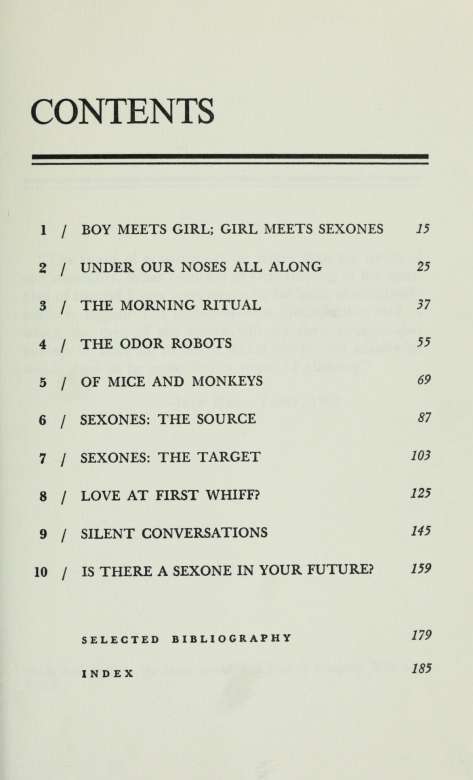
"The world of sensations is far larger than the limits of our sensibility. What numbers of facts relating to the interplay of natural forces must escape us for want of sufficiently sensitive organs? The unknownthat inexhaustible field in which the men of the future will try their strengthhas harvests in store for us beside which our present knowledge would show as no more than a wretched gleaning/'
Jean Henri Fabre, 1904
(From Social Life in the Insect World, The Century Company, 1912, New York.)
SCENT SIGNALS
THE SILENT LANGUAGE OF SEX
CHAPTER
BOY MEETS GIRL; GIRL MEETS SEXONES
It happened just as in that famous song. There was music floating across a crowded room.... Okay, it was actually Muzak in a hotel lobby. But there was this handsome stranger, and he did walk up to meme, with the librarian glasses. Me with the sensible shoes. Me with the plastic meeting badge pinned to my five-year-old jacket.
I was running through pessimistic projections ("I'm standing next to his girlfriend." "He thinks I'm selling banquet tickets.") when he stopped squarely in front of me and said, "I know you. I saw your picture once."
"You did?" I asked, without breathing.
"With that article on eating cereal roughage. My roommate really loved it. He's always had this problem with, uh..." He shrugged and introduced himself. We shook hands.
I'd seen his name before, too. There aren't many science writers to begin with, and his stories appeared in a rock and roll magazine. I stared at his plastic badge, and then my unruly eyes wandered eastward, across his sports jacket, and came to rest in the downy recesses of his open collar.
"Will you be in New York the whole week?" he asked.
"Yes," I said too quickly, then regretted sounding overanxious. I looked up to see what damage that comment might have done, and ran smack into his playful eyes, which sent a jolt through me like nothing I'd felt before.
He glanced at his watch. Here it comes, I thought. You blew it. Your first and last handsome stranger.
"It's almost noon. Are you going to that conference on solar energy?"
This time I just nodded.
18 / SCENT SIGNALS
"We have time for lunch. Want to?**
We went to the coffee shop, and he peeled my nervousness away like the leaves of an artichoke. He was from California, which explained his February tan, he had studied physics and was single. He looked a little like my brother, which made me feel immediately close to him. It turned out that we liked the same sports. And his hair was even the same shade as mineno license to take possession, of course, but an interesting coincidence.
We paid for lunch and walked toward the elevators. He was a nice guy. Too bad he lived in California and I lived three thousand light-years away in Washington, D.C. If only we were neighbors, I could ply him with my famous crab quiche and chocolate souffle. But some guys are allergic to eggs. It probably, I consoled myself, wouldn't have worked out anyway.
Several dozen people, or so it seemed, squeezed onto the elevator behind us, and I wound up with a perfect view of my new acquaintance's shirt buttons. I was also within range to notice something else: the pleasant combination of his smoky cologne, his ironed shirt, and the beginnings of a gentle sweat. By the time we were halfway to the thirty-fifth floor, I was rapidly losing my interest in solar energy....
To spare you the intimate details, let's just say that we fell in love and the distance from San Francisco to Washington is not so great if one's company can be persuaded to buy plane tickets to crucial business meetings on either coast.
Before long, we were talking about marriage. And while this seemed a logical step, I couldn't help wondering: Was love at first sight rational? Was it a trustworthy foundation for marriage? Famous songs and mythic rendezvous are great, but are they any way to run a modem romance?
I wasn't sure, in short, that I believed in love at first sight, and suspected that my hormones were merely playing
tricks that would lead my liberated head to mutiny after a year or two of marriage. We put off making The Decision. I wrote Ann Landers, read the Kinsey report, called my mother, and stewed.
Then one day, while browsing through the Love and Sex shelf of a used-book store, I came across an obscure ten-year-old novel by Alex Comfort, who had, in the decade following, achieved fame and fortune with his book The Joy of Sex. Maybe he had the answer.
Comfort's novel, Come Out to Play, involves a British biologist named Dr. George Goggins, who meets a slightly mysterious and altogether charming Hungarian woman named Dulcinea. George promptly relieves Dulcinea's aging and not-so-attractive husband. Otto, of the burden of a young and intelligent wife. Then together, after discovering a mutual interest and talent in such matters, they decide to open a discreet sex-therapy clinic in the South of France.
While in his office one afternoon, George catches the scent of a penetrating and exotic perfume that smelled like tuberose flowers, but with an important difference.
"There was a grassy, mealy undertone that produced a mental click like a change of gears," he recalled, and he suddenly felt overwhelmingly affectionate. "The blotter felt feminine. It wanted to be stroked. So did my own knee." He leaves for homeand Dulcineastreaming clouds of that irresistible scent.
The inventor of the strange perfume soon reveals himself to be a small, high-strung French chemist named Pierre Marcell. Some years before, he had read an article in a sex-behavior journal by George Goggins himself, on the possibility of creating odor substances (similar to those found in insects and animals) that could affect human behavior. The suggestion so captured Pierre's fancy that he launched a two-year chemical study. At last he created a powerful attractant chemical. And that, as it turns out, was the strange perfume that wafted through George's window.
Font size:
Interval:
Bookmark:
Similar books «Scent signals. the silent language of sex»
Look at similar books to Scent signals. the silent language of sex. We have selected literature similar in name and meaning in the hope of providing readers with more options to find new, interesting, not yet read works.
Discussion, reviews of the book Scent signals. the silent language of sex and just readers' own opinions. Leave your comments, write what you think about the work, its meaning or the main characters. Specify what exactly you liked and what you didn't like, and why you think so.



